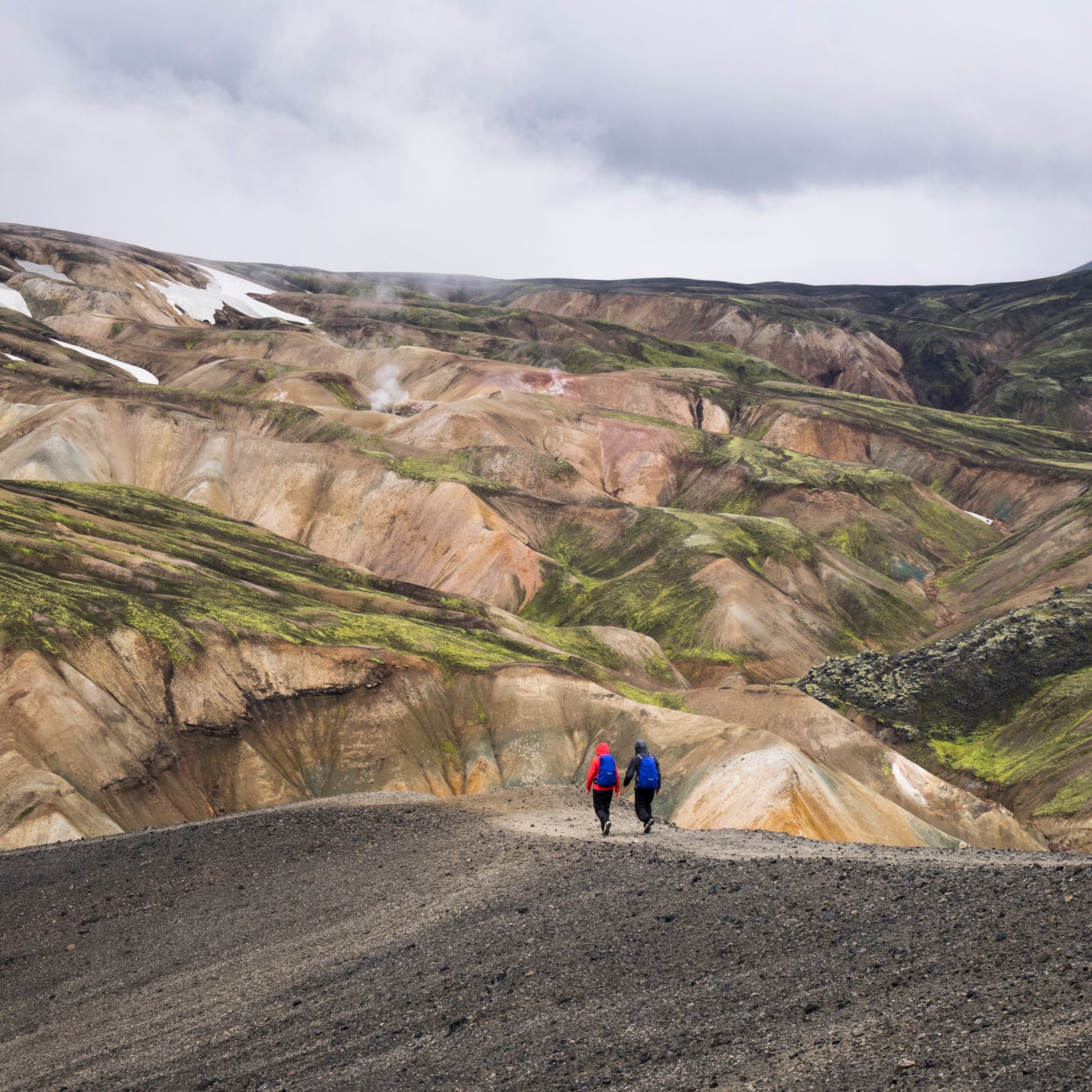Welcome to Tough Love. Every other week, we’re answering your questions about dating, breakups, and everything in between. Our advice giver is Blair Braverman, dogsled racer and author of . Have a question of your own? Write to us at toughlove@outsideim.com.
I am recently engaged to a wonderful man (I’ll call him Sam). Sam and I are very outdoorsy and go backpacking together whenever possible. The problem is that I think he believes in me a bit too much.
This is where I need to mention my long history of physical and mental illness. I had thyroid cancer in 2012, which was thankfully treated quickly and well. I’ve been in remission since 2013. However, my thyroid was entirely removed, and most of my parathyroids, too (parathyroids manage your body’s calcium levels). Also, I was diagnosed with depression in 2000 and still need treatment. I take various medications and calcium tablets every day to stay healthy.
Now my dilemma: Sam thinks I can do everything he can do when backpacking, but I’m struggling to handle all the rugged backcountry, elevation changes, and long-mileage days we’ve been doing. I love backpacking, but I struggle so, so much on some backpacking days—to the point I’ve almost cried from exhaustion and frustration. I’m afraid of losing my meds or having a medical emergency on the trail. I need frequent breaks and more trail snacks than most. When we get to camp, I often go straight to sleep after dinner because I’m so wiped out. I’m trying my best, and Sam believes in me so much. I’m not sure he really understands how this is affecting me, even though I’ve talked to him about it. He usually hikes ahead of me on the trail, because he walks so much faster, and waits for me at intervals. I feel guilty about this, too. Not to mention, due to campsite scarcity in the backcountry, it’s difficult to plan shorter mileage or routes. Any advice would be very much appreciated.
When you struggle to keep up with Sam, it’s not because you’re doing less than him. It’s because you’re doing more: hiking, yes, but also caring for a body with significant medical needs and carrying the mental burden of worry about medication and health emergencies. You are not less than. You are, quite literally, working harder.
The problem isn’t that Sam believes in you too much; it’s that he ��DZ����’t believe you, not really, when you express how hard things can be. There’s a small possibility that he’s being willfully ignorant and dismissing your needs because he wants to feel faster, or he ��DZ����’t want to be held back, or he’s a jackass. In that case, it’s good to know now, before you’re married—because anyone who would treat you like a burden, or push you beyond your limits for their own gratification, is not someone you want to marry.
But let’s give Sam the benefit of the doubt and assume that he truly ��DZ����’t understand. His enthusiasm isn’t malicious; rather, it’s an expression of privilege. If his body has always made things easy for him, it might be hard to appreciate what it’s like for people for whom that isn’t the case. He might not realize that someone can be struggling, even if they look healthy. He may be afraid, on some level, to acknowledge your health problems in their entirety, because doing so means accepting a frightening truth about someone he loves. But since you’re planning to spend your lives together—congratulations, by the way!—it’s important for him to see you as you really are, not as he wishes you could be.
I suggest making a list of things that can be hard for you about backpacking, then asking Sam to sit down with you and go through them, one by one, to brainstorm ways to make them easier. The point isn’t just to solve the problems—say, to carry a ���ʰ������ٰ��������� or other device in case of an emergency. It’s to solve them together, so that you’re both on the same side, both figuring out how to make things easier and more fun. I suspect that a big part of the solution will be dividing the physical and mental workload fairly between you. In this case, “fair” ��DZ����’t necessarily mean equal; it means dividing the load in such a way that the effort feels reasonable for both of you, so you can have a good time together. For instance, Sam should probably be carrying significantly more weight than you do, taking on the burden of group gear like a tent, quilt, and cooking pot. If he wants to hike ahead for a while—if that’s an arrangement that feels OK for you—then maybe he can have a picnic lunch waiting when you arrive, so that you can sit down immediately and eat together.
On your next trips, it may be helpful to remind yourself—and to ask Sam to remind you—that there is absolutely no right or wrong speed or distance for backpacking. It is not better to hike faster. It is not better to go farther. It is not more virtuous to summit a fourteener than to take a stroll in the woods. The beauty of wilderness is that it is completely neutral to our human goals and worries. It should be a place where you and Sam can focus on relaxing, on spending time together, on building your connections to each other and the natural world. A place to remember that, sometimes, the best way to love someone isn’t to tell them they can do anything. It’s to ask what they want to do, then help them achieve it.


